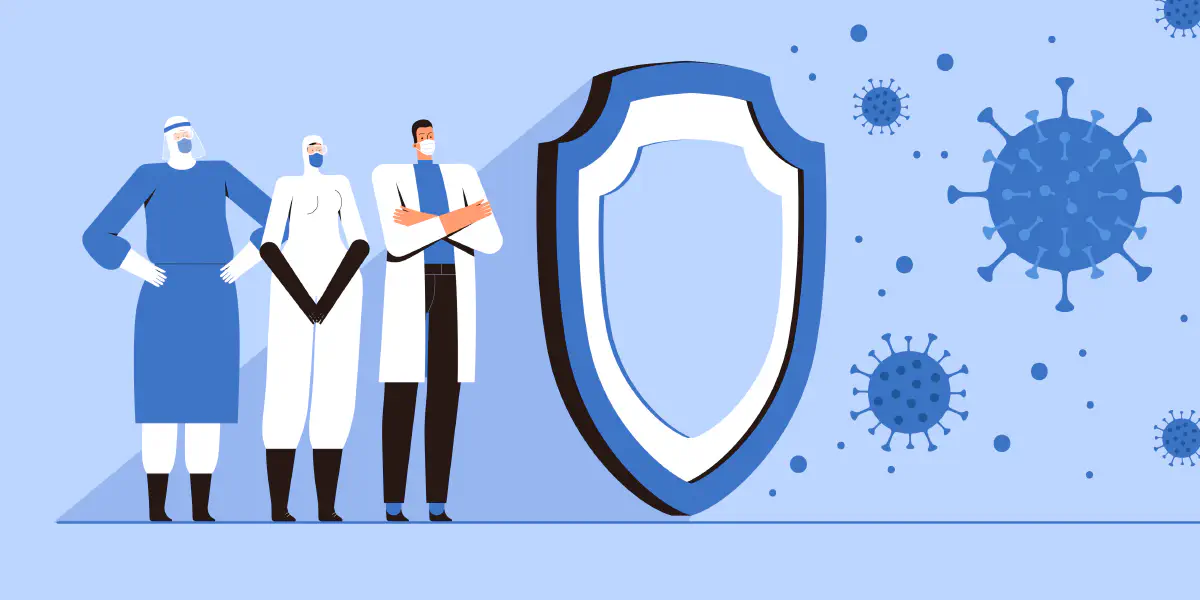Coronavirus: No-Panic Help guide
November 15, 2021

Understanding and Protecting Yourself from COVID-19: 2024 Update
Here are the answers to the most common questions about COVID-19 based on discussions with experts from reputed institutes and guidelines from the CDC, WHO, and MoHFW.
Basics First
COVID-19 is an infectious disease that can spread directly or indirectly from one person to another. It involves your upper respiratory tract (nose, throat, airways, and lungs) and is caused by the novel coronavirus, first identified in Wuhan, China, in December 2019.
How Deadly is Coronavirus?
COVID-19 has high infectivity but relatively low mortality. The mortality rate ranges between 1-2%, significantly less severe than the 2003 SARS (MR: 10%) or 2012 MERS (MR: 35%) outbreaks. The risk of death is higher in older people (above 60 years) and those with pre-existing health conditions.
Why is There So Much Panic?
The lack of verified facts and circulating rumors contribute to panic. The uncertainty of how a new virus may affect people also fuels fear.
Will I Die if I Catch the Disease?
No. Almost 80% of people experience mild symptoms and recover within two weeks. Most symptoms can be treated with timely medical care.
Who is Getting Sick and How Sick?
Older people are more likely to have serious COVID-19 illnesses. Most COVID-19 cases are mild, especially in children and young adults.
Are Children Also at Risk of Coronavirus Infection?
COVID-19 appears to be relatively rare and mild in children. Just over 2% of cases are among those under 18 years of age, with fewer than 3% developing severe or critical illness.
How Exactly Does the Coronavirus Spread?
An infected person can spread the virus through eye, nose, and mouth droplets produced when coughing or sneezing. It can also spread through close contact with an infected person or contaminated surfaces, objects, or personal items.
Can the Novel Coronavirus Be Passed on Through Food?
No, there is no evidence to suggest that COVID-19 spreads through food. Experience with other coronaviruses like SARS and MERS suggests that foodborne transmission is unlikely.
Can Eating Chicken or Eggs Cause Coronavirus?
No, there is no evidence to suggest that COVID-19 spreads directly through poultry products. Experts recommend consuming only properly cooked meat.
Do I Have Coronavirus if I Am Coughing or Sneezing?
You can suspect COVID-19 if you have symptoms (fever, cough, shortness of breath) and any of the following:
- Travel history to a COVID-19 affected area.
- Close contact with an infected person.
- Visiting a healthcare facility where COVID-19 patients are being treated.
Should I Be Tested for Coronavirus?
Testing for COVID-19 should only be done as recommended by doctors if someone falls under the definition of a “suspected case.”
Protecting Yourself Today in 2024
Personal Protection
- Wash your hands regularly with soap and water.
- Use an alcohol-based sanitizer when soap and water are not available.
- Avoid touching your eyes, mouth, or nose with unclean hands.
- Maintain a distance of at least 1 meter from anyone coughing or sneezing.
- Use no-touch greetings like “Namaste” or hand waving instead of handshakes.
Protecting Your Loved Ones
- Sneeze or cough into a tissue and dispose of it immediately, or use the inner side of your elbow.
- Avoid traveling or visiting crowded places if you’re sick.
- Wear a mask if you’re sick and when caring for someone with symptoms.
Protecting Your Community
- Seek medical attention if you feel unwell.
- Stay indoors if you have a fever, cough, or difficulty breathing. Call healthcare professionals and follow their advice.
- Share only authentic information from medical experts to avoid spreading misinformation.
Latest State of Affairs on COVID-19 in 2024
As of 2024, COVID-19 continues to be a global health concern, but with increased vaccination rates and improved treatments, its impact has been significantly reduced. Vaccination campaigns have been successful in many parts of the world, leading to a decline in severe cases and deaths. However, it remains important to stay vigilant and follow health guidelines to protect yourself and others.
Continued emphasis on vaccination, including booster doses, and adherence to public health measures are crucial. The development of antiviral medications has also improved outcomes for those who contract the virus.
Staying informed about new variants and following updated guidelines from health authorities is essential to navigating the ongoing pandemic.